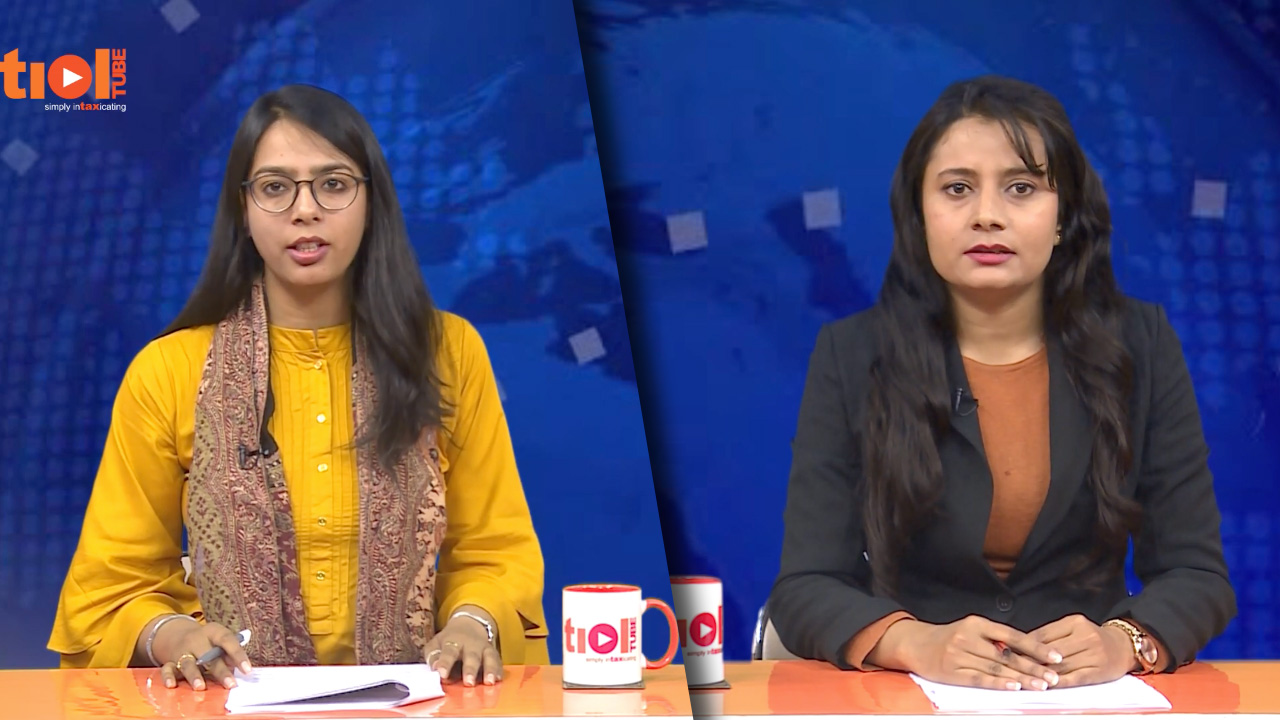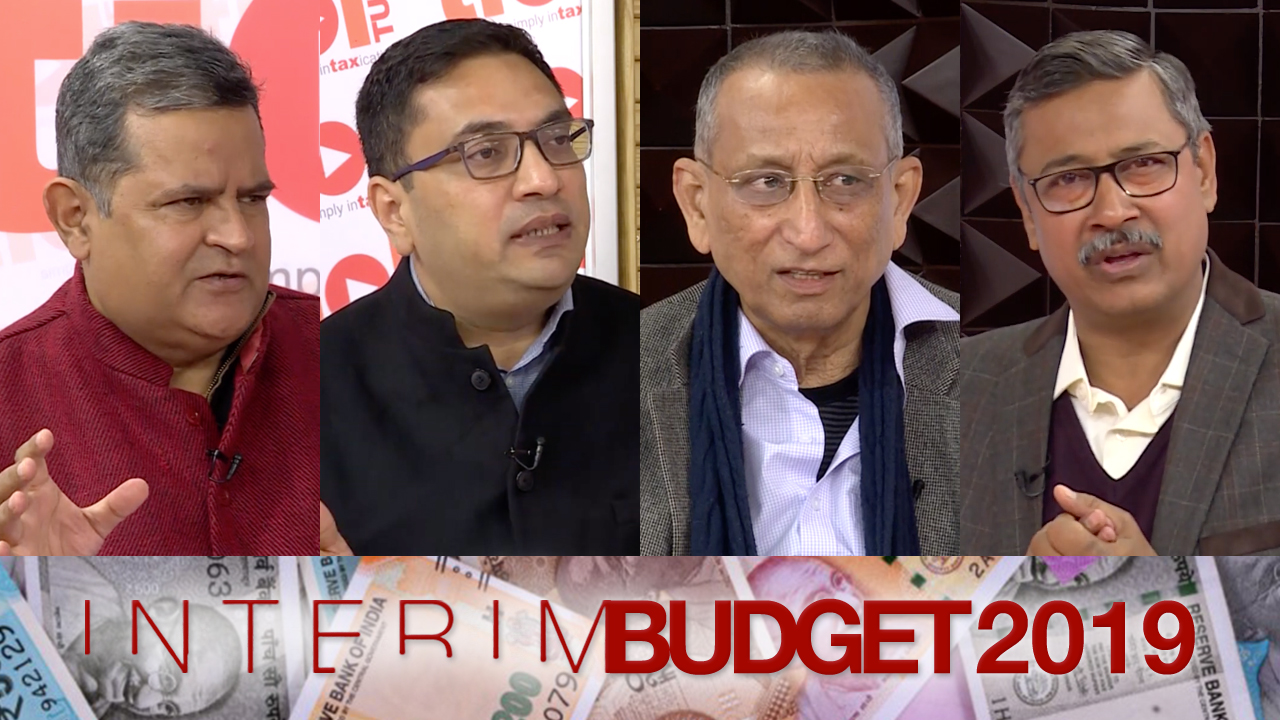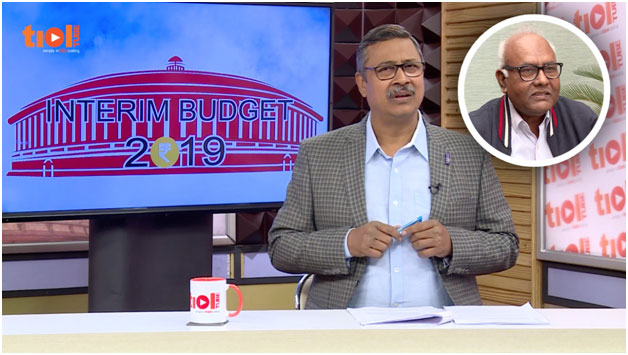|
SERVICE TAX
2019-TIOL-566-CESTAT-AHM
Nirma Consumer Care Ltd Vs CST
ST - Appellant claimed Cenvat Credit in respect of inward transportation and inward GTA service - refund disallowed as not eligible for the reason that Rule 2(p) was omitted by notification 08/2006-CE dated 19.04.2006 - appeal to CESTAT.
Held: The denial of credit on the ground that explanation of Rule 2(p) was omitted is absolutely incorrect - By virtue of Rule 2(r) of Cenvat Credit Rules, 2004, since the appellant is undisputedly discharging the Service Tax even though on Reverse Charge Mechanism, he is deemed service provider - The inward transportation on deemed service is discharged is otherwise the input service as per the definition of input service under 2(l) of Cenvat Credit Rules - Thus, demand of Cenvat Credit on this issue is set aside - As regard the issue that invoice of GTA is in the name of Nirma Marketing Enterprise - Nirma Marketing Enterprise and appellant are separately registered and engaged in separate activities - Therefore, in the eyes of Service Tax laws, even though both are under the same company, both are separate assessee - Credit of one assessee cannot be transferred to another - Accordingly, the credit availed by the appellant on the strength of invoice in the name of Nirma Marketing Enterprises is not admissible - Thus, demand of credit on this issue is maintained - As regard, the Cenvat credit prior to 01/01/2005 - The appellant have declared aggregate Cenvat amount in the ST-3 return but individual service wise credit detail is not available in the ST-3 return - The discrepancy was pointed out by the audit - Prior to audit, the fact was not disclosed to the department - Therefore, there is a clear suppression of fact - Thus, the demand cannot be set aside on account of time bar and is upheldAssessee appeal partly allowed : CESTAT [para 4]
- Appeal partly allowed: AHMEDABAD CESTAT
2019-TIOL-565-CESTAT-BANG
J P Constructions Vs CCE + ST
ST - Assessee was constructing student hostel and staff quarters for the Trust only and they had a bona fide belief that they are not liable to pay service tax as they were doing construction work only for Trust which had exemption vide Notfn 25/2012-ST - Further, when the letters were received from Department thereafter assessee paid the entire service tax along with interest from her own pocket in spite of the fact that the client of assessee refused to pay the service tax to her - Further, the imposition of penalty of 15% under Section 78 is not applicable, because the entire service tax along with interest was paid two years before the issue of SCN whereas reduced penalty under Section 78 is applicable if payment is made within 30 days from the date of SCN - Further, on the basis of correspondence with customer, assessee had a bona fide reason for not taking the registration in 2012 when they were constructing the hostel and staff quarter for the Trust - Assessee was under a bona fide belief that only construction of residential complex was taxable and therefore, they declared 'Nil' turnover under that category - In view of these circumstances, imposition of various penalties on assessee is not sustainable in law, same are set aside: CESTAT
- Appeal allowed: BANGALORE CESTAT
CENTRAL EXCISE
2019-TIOL-564-CESTAT-BANG
Molex India Pvt Ltd Vs CCT
CX - The assessee is engaged in manufacture and clearance of excisable goods like cable and connectors - During audit, certain irregularities and discrepancies were noted and thereafter SCNs were issued for taking irregular CENVAT Credit and not reversing the CENVAT Credit in terms of formula under Rule 6(3A)(b)(iii) of CCR, 2004 - Vide impugned order, the Commissioner (A) has also remanded these two appeals without recording any submissions of assessee on merit as well as on limitation - Most of the demand is time-barred as there was no suppression of fact on the part of assessee with intention to evade tax - Further, assessee have been giving intimation from time to time regarding reversal of CENVAT Credit as per CCR, 2004 but Commissioner (A) has not given any findings in these two appeals with regard to issue involved - Therefore, these two appeals need to be remanded back to Commissioner (A) with a direction to give specific findings on merit as well as on limitation - After considering all the documents on record both these appeals are allowed by way of remand to Commissioner (A) to dispose of the appeal within a period of 02 months: CESTAT
- Matter remanded: BANGALORE CESTAT
2019-TIOL-563-CESTAT-AHM
Mahendra Metal Industries Vs CCE
CX - The assessee-company, engaged in manufacturing Copper rods & strips, brass rods & strips, etc., surrendered its registration and obtained a fresh registration under a new name - The Revenue alleged that for the relevant period, the assessee indulged in clandestine removal of goods - Statements of assessee firm's partner were taken, records were scrutinized & investigations were conducted with co-operative banks, upon which the Revenue alleged that the assessee issued parallel invoices for clandestine removal of goods - It was also alleged that from verification of records that the assessee should have substantial quantity of stock in balance, but no stock was found at the time of surrender of certificate - Hence it was concluded that the assessee clandestinely cleared goods - Duty demands were raised with interest along with penalty u/s 11AC of CEA 1944 and Rule 25 of CER 2002 - Personal penalty was also imposed on the partner.
Held: It is seen that the adjudicating authority did not permit the assessee to cross examine the witnesses whose statements had been recorded - Besides, cum duty benefit was not considered - Moreover, some amount of duty already paid was not considered - Statements recorded of various persons are vital evidence & if such statements are retracted, they can only be used after cross examining the witness, as per Section 9D of the CEA 1944 - Hence passing an adjudication order without permitting cross examination is contravening of the principles of natural justice - Principles of natural justice form the foundation in any adjudication proceedings - If such principles are not followed, the adjudication would become meaningless - Moreover, in M/s CCE, Vs. Jai Prakash Motwani the High Court of Gujarat held that when penalty is imposed on a partnership firm, no separate penalty can be imposed on the partners in such firm - Hence the personal penalty imposed on the assessee firm's partner is quashed - The assessee's appeal warrants remand for passing fresh order: CESTAT (Para 1,7,9)
- Assessees' appeals partly allowed: AHMEDABAD CESTAT
2019-TIOL-562-CESTAT-AHM
General Motors India Pvt Ltd Vs CCE & ST
CX - The assessee was procuring components from various vendors for use in assembly and manufacture of passenger car in their factory - They removed input on payment of duty as such to some vendors for use by such vendors in their manufacture of other parts - In that process they supplied one part ‘nut weld' as removal of input as such basis - Later on they found that the excise duty was paid less to the tune of Rs. 790/- while removing the above said part - The adjudicating authority ordered for recovery of such re-credited amount on the ground that assessee could not have taken suo moto credit whereas they should have followed the procedure of filing of refund under Section 11B - On this issue of re-credit Larger Bench of Tribunal in case of BDH Industries Ltd. - 2008-TIOL-1211-CESTAT-MUM-LB held that there is no provision under Central Excise Act for suo moto refund of excess/ twice paid duty - However, there is neither excess payment of duty nor twice duty was paid - The duty payable is only the amount which was mentioned in the invoice - It is only due to computer system the huge amount of excess as compared to actual duty payment shown in invoice was debited, therefore, this is not a case of either of excess payment of duty or twice payment of duty - Therefore, decision of Larger Bench is not applicable in the present case - In case of Sopariwala Exports Pvt. Ltd. - 2013-TIOL-1936-CESTAT-AHM , the Tribunal has observed that Larger Bench while passing the order has not noticed the decision in case of Motorola India Pvt. Ltd. of Karnataka High Court - It is also observed that the Rajasthan High Court dealing with the same issue in case of J K Laxmi Cement Ltd. held that the service tax payment on outward transportation though paid by utilizing cenvat credit but later again paid in cash, the amount paid from cenvat credit account was required to be reversed and the assessee was entitled to take suo moto credit - In case of S. Subrahmanyan & Co. , Tribunal distinguished the judgment of BDH Industries Ltd. - In view of this developed position of law involved in the present case the suo moto credit of excess debit made by assessee is eligible to the assessee - Accordingly, the impugned order is set aside: CESTAT
- Appeal allowed: AHMEDABAD CESTAT
CUSTOMS
CIRCULAR
dgft18cir020
Clarification on eligibility of Exports made from SEZ/EOU units on behalf of the DTA units, but not through DTA units CASE LAW
2019-TIOL-561-CESTAT-DEL
Ajay Kumar Vs CC
Cus - The issue involved is regarding classification of "hook and eye fastening strip" Nylon 60 imported by assessee - As per import invoices, exporter is manufacturer also - The imported goods are of different colours, shapes and sizes - The exporter declared the classification of aforesaid exported goods under CTH 83081010 - This classification was not acceptable to Customs and after examination of said imported goods, reclassification the goods as "hooks and eye fastening strip of brassieres" consisting of metallic hooks and eyes inserted in strip made up of cloth - It is clear that if the eye and hook which is made of base metal with some part containing that of textile and plastic would be classifiable under that heading, if it retains the character of hook and eye - The eye and hook retain their character even after being placed on cloth plastic leather strip - The bra cannot be functional without hook and eye loop - It is manifestly clear that main function of the hook and eye is to fasten the bra and the strips are only used for holding them - In Gosai Trader Case - 2007-TIOL-980-CESTAT-KOL the man emphasis has been assigned to "cloth plastic strip" and "hook and bra" has been given only ancillary function, which is highly mis-placed - In addition to above it has also been demonstrated that the imported item has another application as hand gloves and shoes - So the goods imported does not have exclusive use in brassieres to be covered as part thereof - The principle of sub-silentio and per incuriam is decided by Apex Court in case of Synethtic & Chemicals - 2002-TIOL-723-SC-CT - The classification of hook and eye fastening strips, imported by assessee will be rightly covered under heading 8308 10 10 - Accordingly, the impugned order is set aside: CESTAT
- Appeal allowed: DELHI CESTAT |
|







